Effect of Power of Attorney Not Executed Before a Notary Public. Daily Law Tips (Tip 762) by Onyekachi Umah, Esq., LL.M, ACIArb(UK)
Introduction:
Any person in Nigeria can make an agreement for himself or for another person for free. An agreement can be made in almost any place, apart from a place that may suggest that a party made an agreement under force or fraud, like in a police station or kidnappers den. According to the Nigerian law of evidence, there is a special position for a power of attorney executed before and authenticated by a Notary Public for Nigeria.
Notaries Public and their Functions:
The Notary Public For Nigeria is an office reserved only for fit and proper senior legal practitioners. Such legal practitioners are appointed by the Chief Justice of Nigeria and sworn-in by Chief Judges of the states where the legal practitioners practice. A Notary Public in Nigeria performs all the duties of a Notary Public in England and is an officer of the Supreme Court of Nigeria. The duties here, include; certification of documents and administration of oaths.
Unfortunately, the Notaries Public Act in Nigeria, failed to specifically list the functions of Notary Public but merely states that a Notary Public in Nigeria will perform the work that a Notary Public in England performs. Justice Niki Tobi, captures this gap in his judgment at the Supreme Court of Nigeria in the case BUHARI V. INEC & ORS (2008) LPELR-814(SC), where he held; “Although the Notaries Public Act does not specifically state the duties or functions of a notary as Section 2(2) of the Act vaguely and lazily provides that a notary appointed by the Chief Justice of Nigeria shall perform the same duties and exercise the same functions as a notary in England, a notary in England performs the function of administering oaths and attest and certify by his hand and official seal some categories or classes of documents. As a matter of practice, notaries in Nigeria perform such functions.”
Power of Attorney and a Notary Public:
Generally, an agreement can be oral or written and there is no special paper or font size for agreements in Nigeria. Also, there is no need for an agreement to be registered in a court, for the agreement to be valid. A power of attorney is an authority/consent given by any person to anyone to do or not to do anything on behalf of the giver of such consent. However, a federal law in Nigeria (the Evidence Act 2011) has a special interest on an agreement that is a Power of Attorney.
Back to the Evidence Act, the law assumes that a power of attorney that is executed (signed) before a Notary Public and authenticated by the Notary Public is truly a power of attorney made by the donor (maker) or parties that their names and signatures appear as the makers of the power of attorney. This is one of the few circumstances were the courts in Nigeria allow presumptions. The presumption is valid and conclusive unless and until there is a rebuttal (contrary) evidence to dislodge such presumption.
The courts in Nigeria presume that a power of attorney executed before a Notary Public and authenticated by the Notary Public is truly made by the person or persons who signed as the makers of the power of attorney. This is understandable, since a Notary Public is licensed to administer oath to persons in Nigeria and as such, where persons come to Notary Public to sign a power of Attorney, the court is safe to presume that the persons truly signed the power of attorney. After all, a Notary Public is expected to be centuries away from lies, deceits and fraud. As a matter of fact, in authentication of documents, a Notary Public is placed on the same position with a Court Judge, Magistrate, Consul, Representative of Nigeria or the President of Nigeria.
Well, since there is a saying that “assumption/presumption is the mother of all mistakes”, the courts in Nigeria are also given powers to reject and refuse the presumption that a power of attorney made before a Notary Public was genuinely made by the parties. So, by this, a court will allow disputants to prove that a power of attorney was genuinely executed (signed) by the purported makers were there are doubts.
In a judgment of the Court of Appeal, in the case of CHIEF G.N. OKOYE v. MR. NONSO DUMEBI (2014) LPELR-24155(CA), Justice Agim, stated that; “The Supreme Court in MELWANI V FIVE STAR INDUSTRIES LTD (2002) 1 SC 120 held that a Power of Attorney that is not executed before the notary public and authenticated by him, will not be presumed to have been made by the donor and the donor’s signature will then have to be proved if it is alleged that the document was not made by the donor.”.
Conclusion:
A power of attorney can be written or oral. Where a power of attorney is written and executed before a Notary Public for Nigeria and authenticated by the Notary Public, the power of attorney will be presumed by all courts in Nigeria to have been genuinely signed and made by its makers. The presence and authentication by a Notary Public adds this presumption to a power of attorney. Also, note that the same presumption is enjoyed, where a power of attorney is executed (signed) before and authenticated by any Court Judge, Magistrate, Consul, Representative of Nigeria or the President of Nigeria. So, the effect of a Power of Attorney not executed before and authenticated by a Notary Public is that no court in Nigeria will presume that the power of attorney was genuinely made by the maker and as such the signature of the maker has to be proved, where the makers claim that the power of attorney was not made by any of them.
References:
- Sections 1, 2, 3, 4, 5 and 6 of the Constitution of the Federal Republic of Nigeria, 1999.
- Sections 1, 2, 6 of the Notaries Public Act, 1936.
- Sections 150 and 259 of the Evidence Act, 2011
- The Judgment of the Supreme Court of Nigeria (on the functions of Notary Public for Nigeria) in the case of Buhari V. INEC & ORS (2008) LPELR-814(SC)
- The Judgment of the Supreme Court of Nigeria (on the effect of Power of Attorney not Executed before a Notary Public) in the case of MELWANI V FIVE STAR INDUSTRIES LTD (2002) 1 SC 120
- The Judgment of the Court of Appeal (on the effect of Power of Attorney not Executed before a Notary Public) in the case of CHIEF G.N. OKOYE v. MR. NONSO DUMEBI (2014) LPELR-24155(CA)
- The Judgment of the Court of Appeal (that agreements need no court or notary public stamping to be valid) in the case of Okafor V. Titilope & Ors (2018) LPELR-44385 (CA)
- Onyekachi Umah, “You Don’t Need To Register Any Agreement In Courts or With A Notary Public” (LearnNigerianLaws.com, 2 December 2020) <https://sabilaw.org/you-dont-need-to-register-any-agreement-in-courts-or-with-a-notary-public/> accessed 22 March 2021.
- Onyekachi Umah, “How To Make Power Of Attorney To Be Genuine And Acceptable.” (LearnNigerianLaws.com, 16 April 2019) <https://sabilaw.org/how-to-make-power-of-attorney-to-be-genuine-and-acceptable-daily-law-tips-tip-312-by-onyekachi-umah-esq-llm-aciarb-uk/> accessed 1 December 2020
- Onyekachi Umah, “Agreements in Nigeria Do Not Require Signatures of Notaries Public or Magistrates or Court Staff to be Legal and Binding” (LearnNigerianLaws.com, 13 January 2018) <https://sabilaw.org/daily-law-tips-by-onyekachi-umah-esq-tip-121-agreements-in-nigeria-do-not-require-signatures-of-notaries-public-or-magistrates-or-court-staff-to-be-legal-and-binding/> accessed 1 December 2020
- Onyekachi Umah, “How To Write Agreements (Contracts).” (LearnNigerianLaws.com, 11 March 2016) <https://sabilaw.org/how-to-write-agreements-contracts/> accessed 1 December 2020.
- Onyekachi Umah, “Stamps and Seals of Courts and Commissioners for Oath Are Not Needed for Agreements To Be Valid.” (LearnNigerianLaws.com, 8 June 2018) <https://sabilaw.org/daily-law-tips-by-onyekachi-umah-esq-tip-118-stamps-and-seals-of-courts-and-commissioners-for-oath-are-not-needed-for-agreements-to-be-valid/> accessed 1 December 2020
- Onyekachi Umah, “Requirements For A Lawyer To Be Appointed As A Notary Public For Nigeria” (LearnNigerianLaws.com, 3 June 2020) <https://sabilaw.org/requirements-for-a-lawyer-to-be-appointed-as-a-notary-public-for-nigeria/> accessed 22 March 2021.
- Onyekachi Umah, “It Is Not “Notary Public Of Nigeria” But “Notary Public For Nigeria” (LearnNigerianLaws.com, 30 January 2020) <https://sabilaw.org/it-is-not-notary-public-of-nigeria-but-notary-public-for-nigeria/> accessed 22 March 2021
- Onyekachi Umah, “Power Of Attorney Can Not Transfer Ownership/Title Of A Property” (LearnNigerianLaws.com, 19 July 2018) <https://sabilaw.org/daily-law-tips-by-onyekachi-umah-esq-tip-145-power-of-attorney-can-not-transfer-ownership-title-of-a-property/?> accessed 22 March 2021
Sabi Law Projects:
#SabiLaw
#DailyLawTips
#SabiBusinessLaw
#SabiElectionLaws
#SabiHumanRights
#SabiLawOnBeatFm
#SabiLawLectureSeries
#CriminalJusticeMonday
#SabiLawVideoChallenge
Speak with the writer, ask questions or make inquiries on this topic or any other via onyekachi.umah@gmail.com, info@LearnNigerianLaws.com or +2348037665878 (whatsapp).
To receive free Daily Law Tips, join our free WhatsApp group via https://chat.whatsapp.com/L7h4f1exItZ38FeuhXG4WN or Telegram group, via the below link: https://t.me/LearnNigerianLaws
To keep up to date on all our free legal awareness projects of Sabi Law Foundation, follow us via
Facebook Page:@LearnNigerianLaws, Instagram: @LearnNigerianLaws, Twitter: @LearnNigeriaLaw and YouTube: Learn Nigerian Laws
Please share this publication for free till it gets to those that need it most. Save a Nigerian today! NOTE: Sharing, modifying or publishing this publication without giving credit to the author or Sabi Law Foundation is a criminal breach of copyright and will be prosecuted. This publication is the writer’s view not a legal advice and does not create any form of relationship. You may reach the writer for more information.
This publication is powered by www.LearnNigerianLaws.com {A Free Law Awareness Program of Sabi Law Foundation, supported by the law firm of Bezaleel Chambers International (BCI).} Sabi Law Foundation is a Not-For-Profit and Non-Governmental Legal Awareness Organization based in Nigeria.
For sponsorship and partnership, contact: sponsorship@learnnigerianlaws.com, sabilaw.ng@gmail.com or +234 903 913 1200.


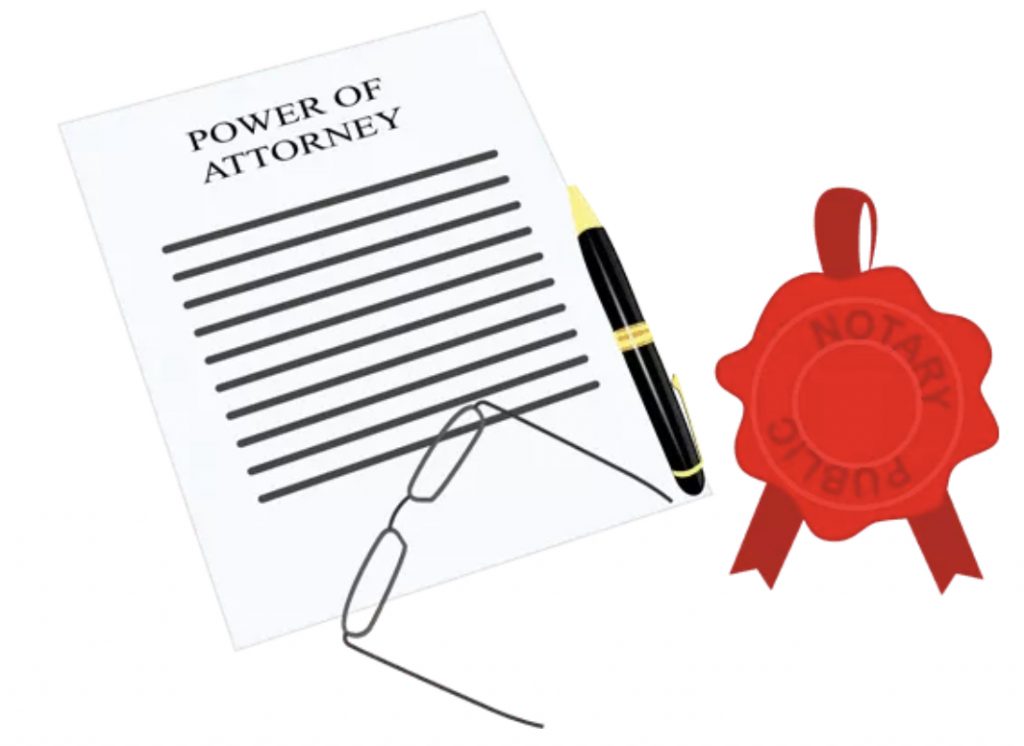
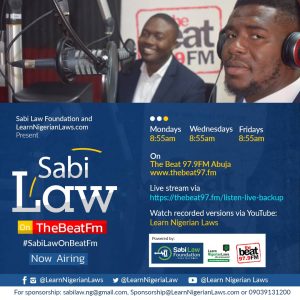
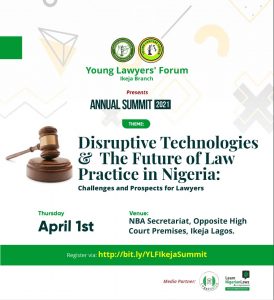
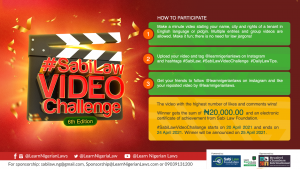

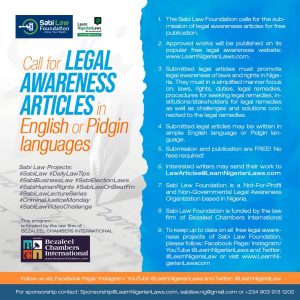









































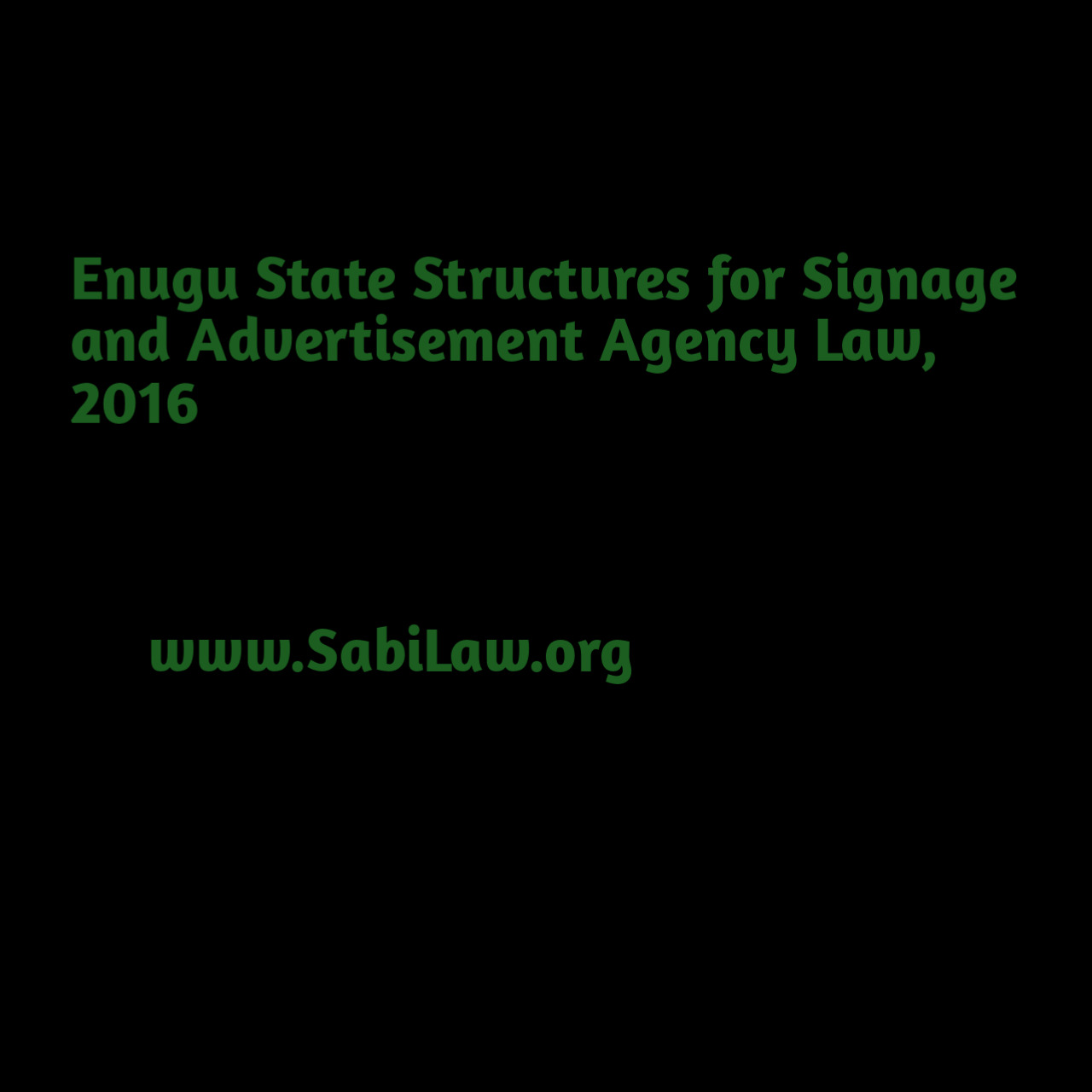
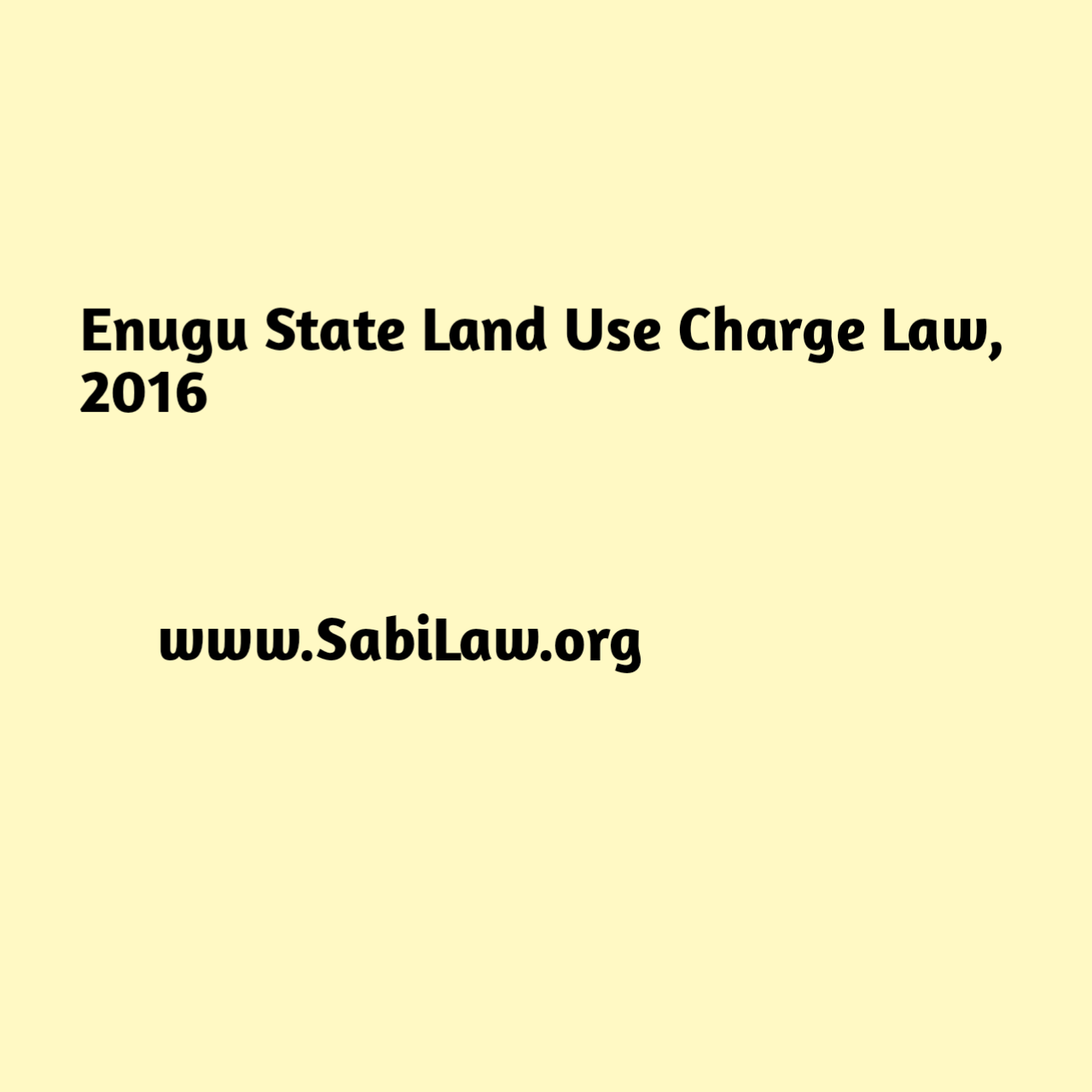
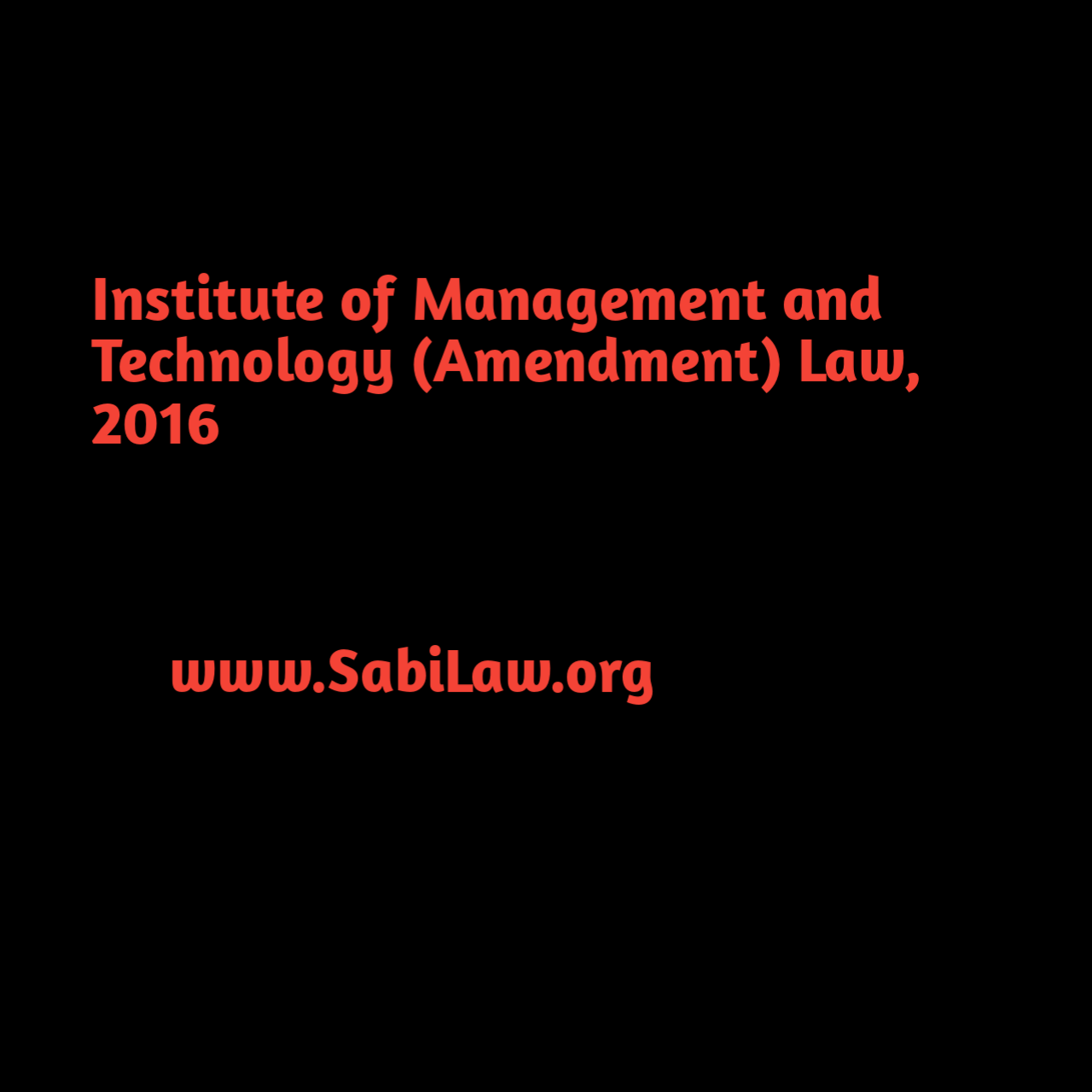
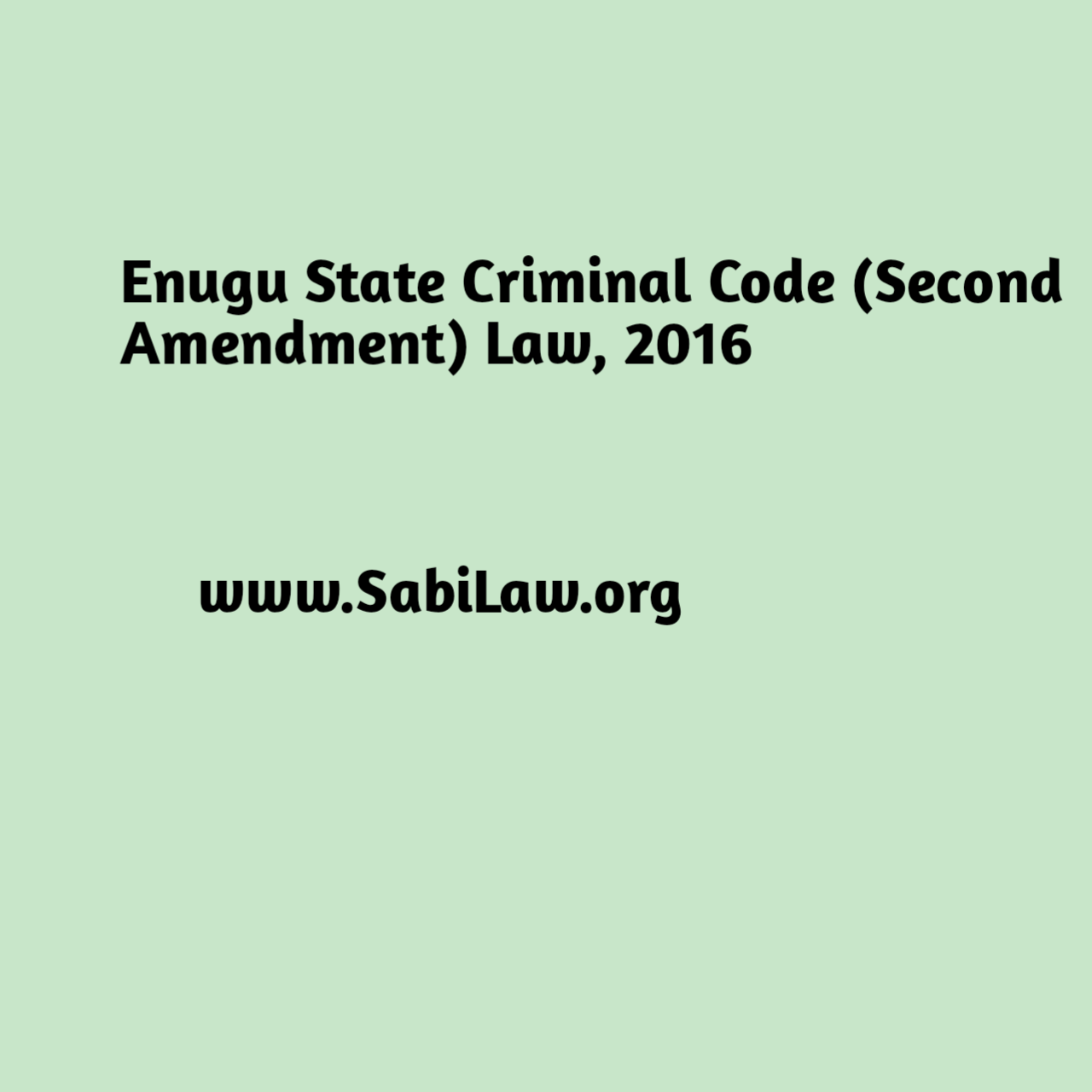
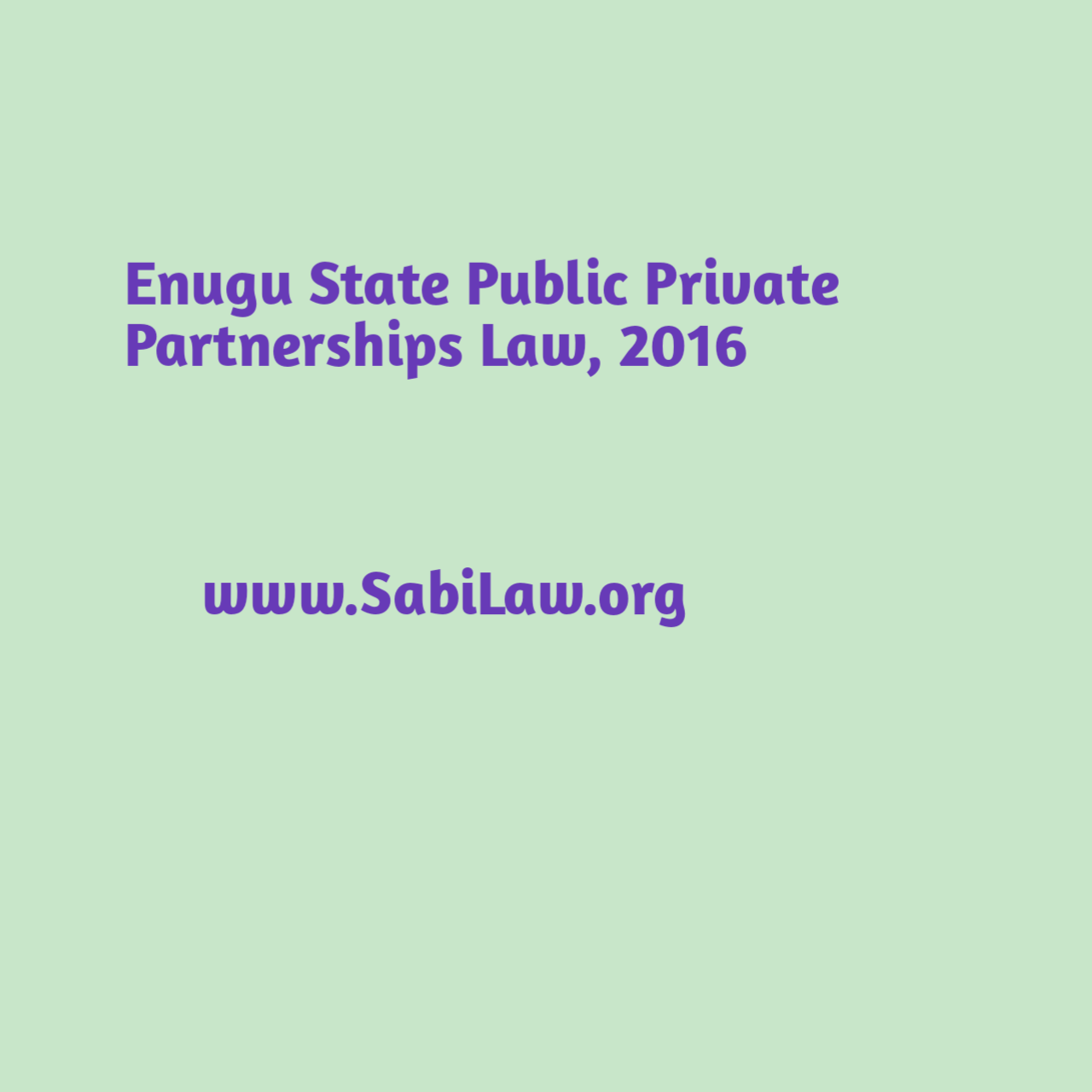
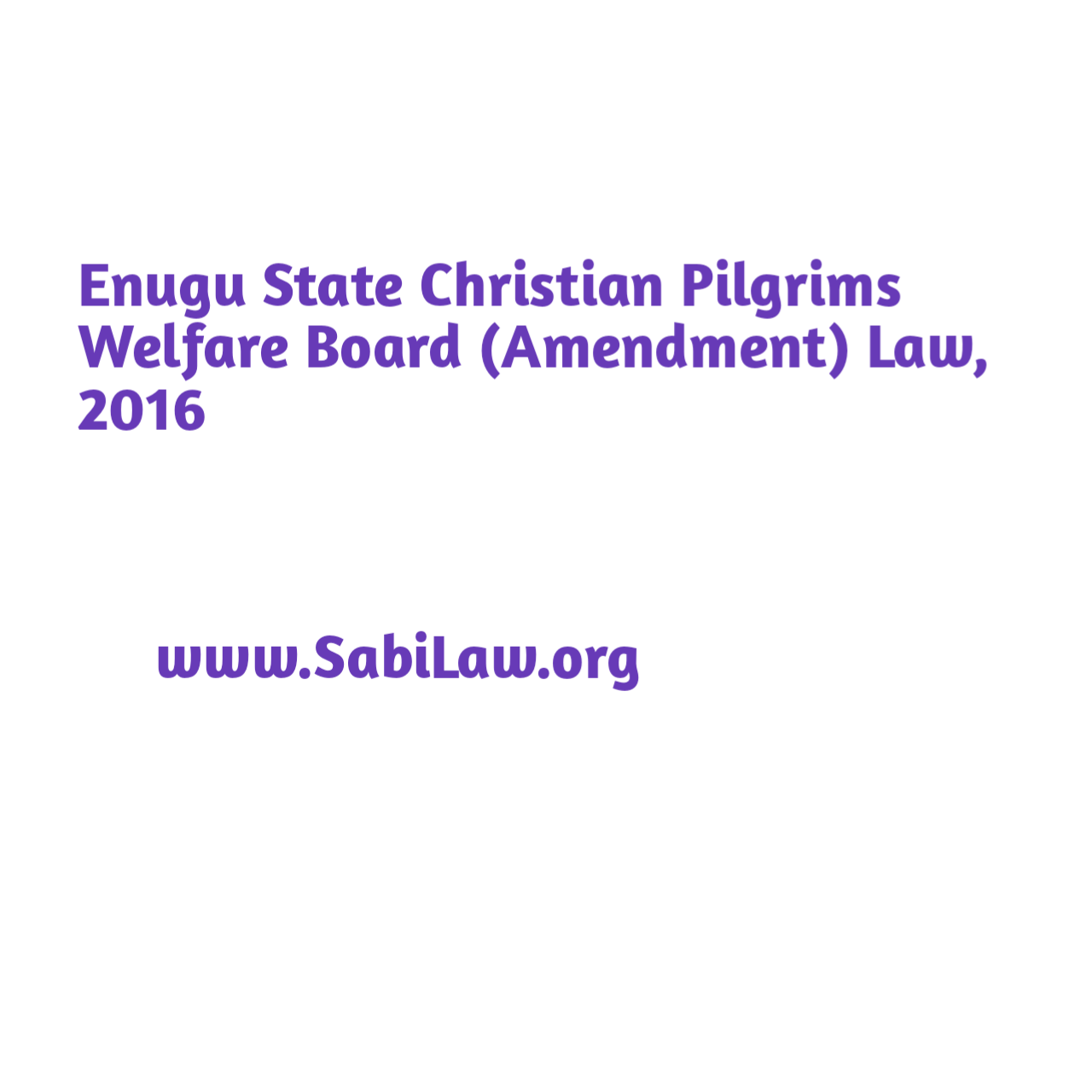
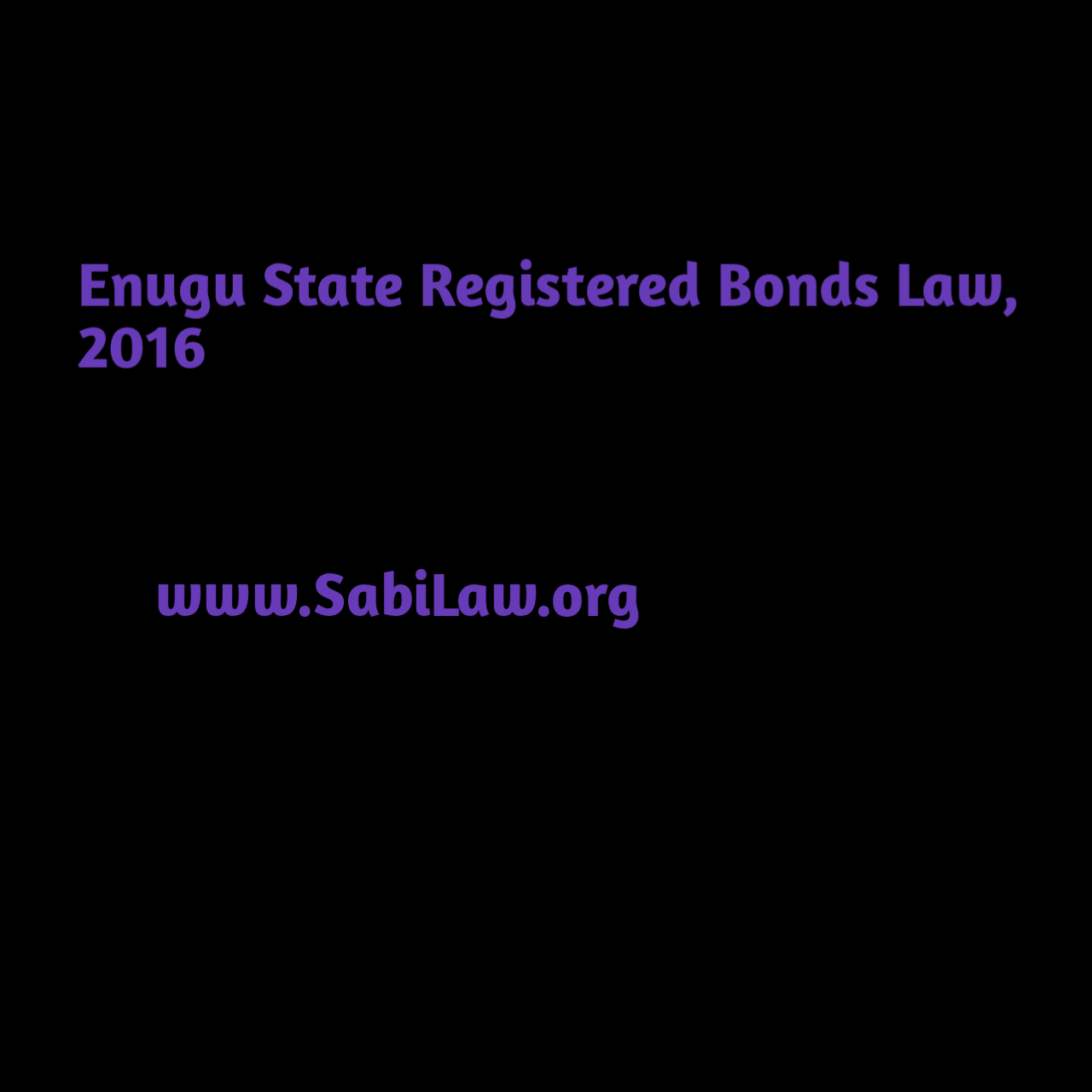
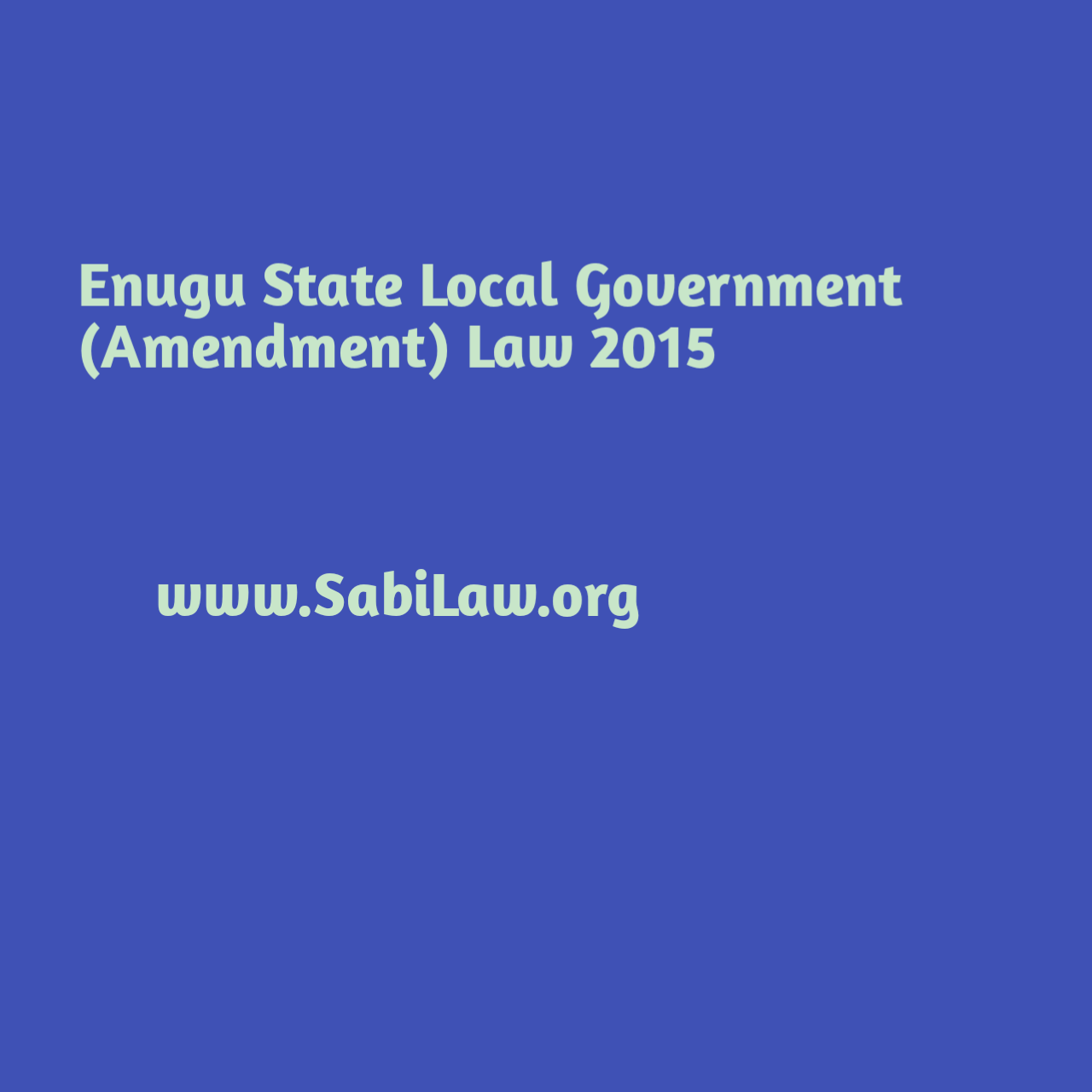
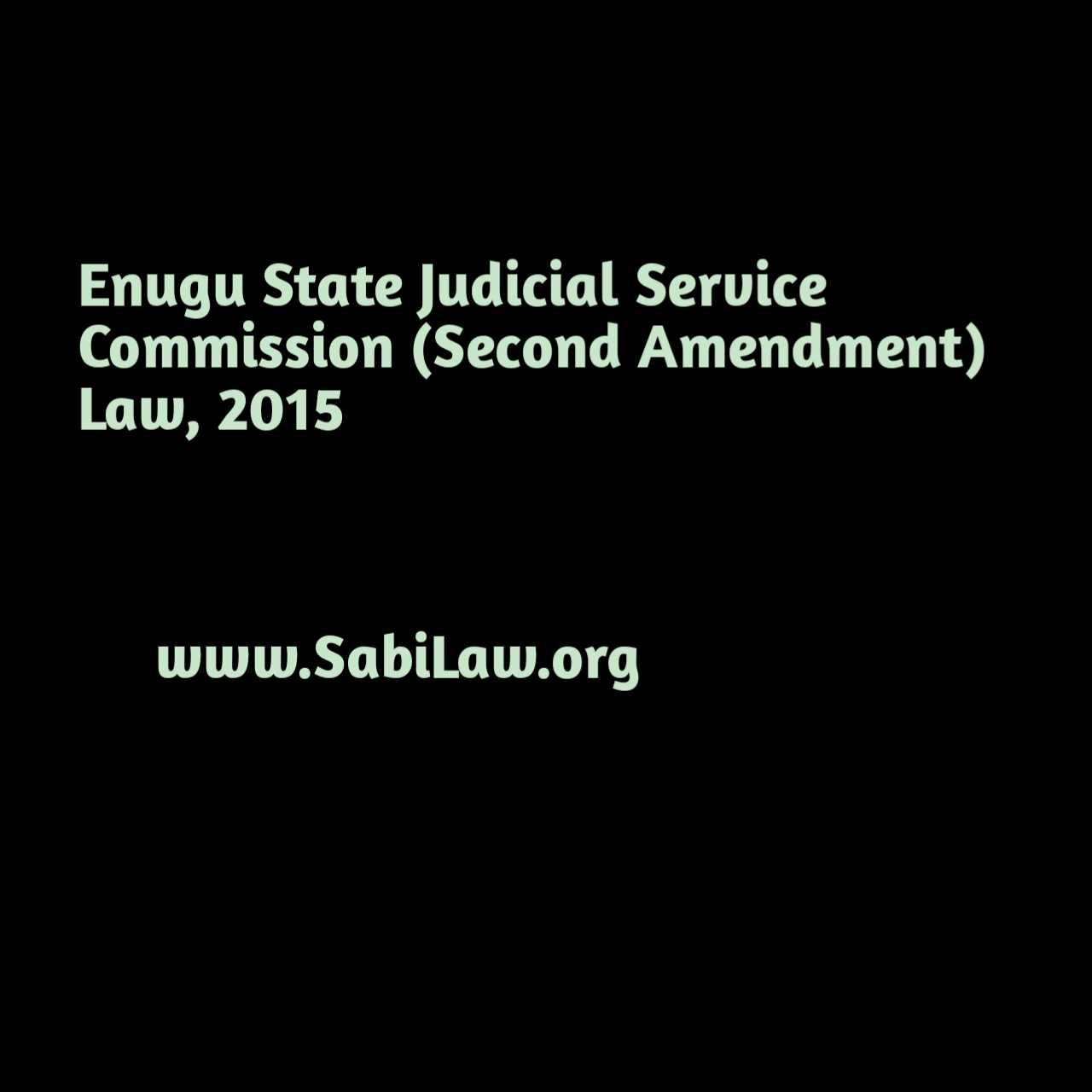
4 Responses